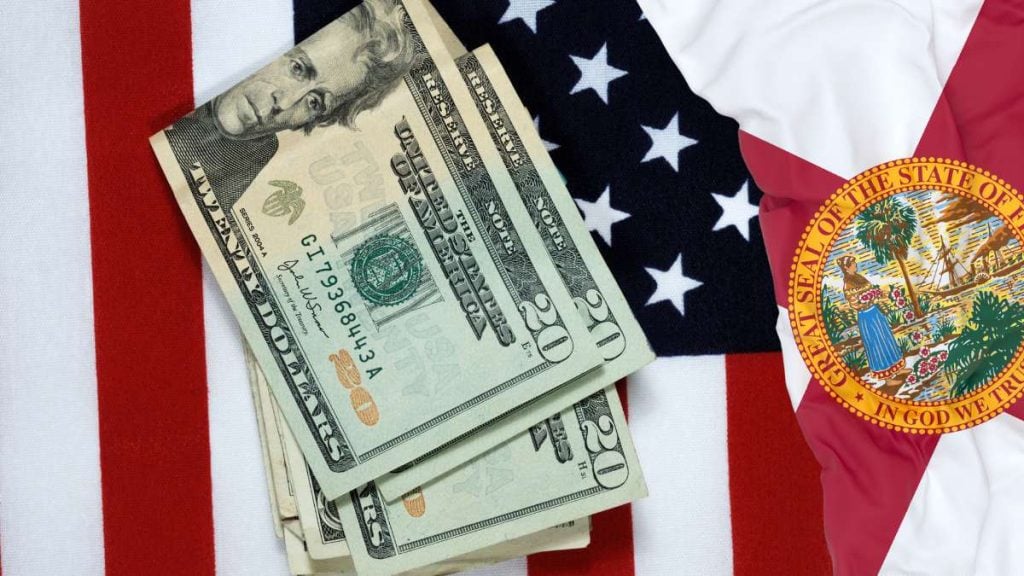The “sunshine state” could use tax revenue, which is typically used to market tourism, to provide tax refunds for millions of qualifying residents. So far, it’s just an idea, but it could become a law if enacted.
HB 7033, introduced in the Florida legislature in 2025, seeks to redirect tourism development tax revenue toward local projects or property tax rebates. Currently, these funds are allocated to tourism promotion, maintenance of facilities such as Raymond James Stadium and beach conservation. The initiative, backed by Republicans, faces debates over its potential economic impact.
Florida HB 7033: proposal for $150 million tax refunds in 2025
Passed by the House Budget Committee on April 22, 2025, HB 7033 moves forward to its next reading. According to the legislative calendar, it must be voted on by both chambers before May 2, 2025 to become law.
If approved, it would come into effect on July 1, 2025, modifying the allocation of $150 million annually collected in areas such as Tampa Bay. The legal text, sponsored by Rep. Monique Miller (R-Palm Bay), would allow counties to use up to 50% of hotel tax revenue for tax rebates or infrastructure. In Tampa Bay, these funds support 33% of hospitality jobs and support 15.4 million annual visitors, based on 2024 data.
Following its committee approval, HB 7033 is scheduled for debate on the Special Orders Calendar on April 25. Its fate depends on negotiations between chambers, where Republicans have a slim majority. Representatives such as Wyman Duggan (R) suggest that the measure could be temporary, although the current text does not specify deadlines.
Tax refunds with Florida funds: Good or bad idea?
Tourism groups such as Destinations Florida warn that the measure could reduce the state’s promotion, affecting 2 million jobs linked to the sector. Robert Skrob, the organization’s executive director, called the proposal “economic sabotage,” citing Colorado’s experience in the 1990s, where similar cuts caused losses of $2 billion annually.
The Florida Shore and Beach Preservation Association warns about possible cuts in beach restoration projects, vital for tourism. In Nassau County, the sector accounts for 36% of jobs, according to the Amelia Island Convention & Visitors Bureau. Without funding, areas like Clearwater Beach could face accelerated erosion and reduced visitation.
Representatives like Linda Chaney (R-St. Pete Beach) support reducing property taxes, a demand that citizens have supported for more than thirty years. In counties like Hillsborough, these taxes generate about $1.5 billion a year. Returning 150 million is perceived as a modest but significant relief for residents.
Some tax exceptions Floridians received in the past
In Florida, property owners have had an interesting opportunity in several occasions: if they pay their property taxes early, they can receive a juicy discount. For example, if you pay off what you owe before the end of November, the county could forgive you up to 4% of the total. It’s like a reward for being punctual with your obligations, and in the process, it takes a little financial pressure off you.
This benefit is a classic that many are unaware of. If you use your home as your primary residence year-round, you don’t just live there – you could also shave up to $50,000 off the value the government uses to calculate your taxes. It’s not that they will give you money back, but you will see how your annual bill is significantly reduced. Of course, you must meet the basic requirements: prove that you really live there and it is not a vacation or investment property.
Has it happened to you that when you review the appraisal of your house you feel that they inflated the price as if it were a mansion? You are not alone. If you believe they valued your property above its actual value, you can fight the case. The process involves providing evidence – from photos of the property’s condition to comparisons with recent sales in your area. If you win, they will not only adjust the figure for the future: they will refund what you overpaid since the error began. Just be prepared for some paperwork and possibly technical conversations with the evaluators.
